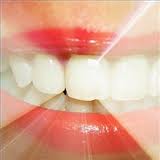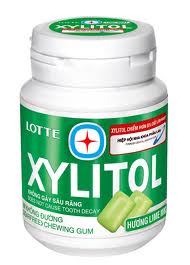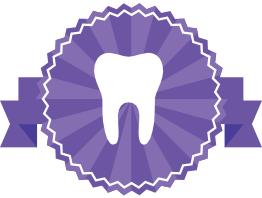Yes you can, as long as it’s Xylitol. Xylitol is a natural occurring alcohol sugar that is commonly used in chewing gum such as “Orbit” and other products.
The main advantage of Xylitol is that it cannot be processed by the natural bacteria in the mouth so that regular use can literally starve the cavity causing bacteria to death!
Used in moderation it can dramatically reduce the incidence of decay in the mouth.
But like all good things there are some precautions that should be heeded. Too much (more than two portions a day) can result in a laxative effect and Xylitol can be lethal to pets. Dogs rapidly develop insulin shock after ingesting Xylitol and it is toxic to their liver whereas humans have no such problems.
So if your dentist says you have way too many cavities, try to have at least two exposures to Xylitol in your mouth a day.
It is important to have only products that have 100% Xylitol and not just small amounts. Some gum or mints have only token amounts of Xylitol and primarily Sorbitol which is cheaper to produce and of little or no benefit.
Sources of Xyltol include: www.zellies.com, www.xlear.com and www.drjohns.com.
So experience the minty, cool and refreshing taste of Xyltol and enjoy better dental health.

Archives for 2011
POISON ALERT – Zinc In Denture Cream

Z inc has been labeled a poison in recent times as an ingredient in denture adhesives and anti-cold nasal sprays. Is this alarm appropriate? Absolutely! But some basic discussion of the ‘why for it’s use’ is required.
inc has been labeled a poison in recent times as an ingredient in denture adhesives and anti-cold nasal sprays. Is this alarm appropriate? Absolutely! But some basic discussion of the ‘why for it’s use’ is required.
Zinc is an essential mineral required for good health. But like all nutrients, we need to take a balanced amount to stay within the range of its healthful benefits. That’s 9 mg/day for women and 11 mg/day for men with a maximum limit of 20 to 40 mg/day. Zinc plays a critical role in a long list of bio-chemical reactions in the body. Zinc is an anti-oxidant that promotes healing and prevents infection. For this reason it is commonly used in skin creams, hair shampoos, sun screens and diet supplements. It’s known to prevent halitosis, age related macular degeneration and gastroenteritis.
But too much of a good thing can come back and bite you. Too much Zinc can cause ataxia (lack of muscle control), lethargy (feeling tired) and Copper Deficiency resulting in permanent nerve damage.
Lack of Zinc causes growth retardation, delayed sexual maturation, increased infections and diarrhea. 800,000 children die every year due to low Zinc.
All of the problems with Zinc have stemmed from improper labeling and excessive use.
In the case of denture adhesives, the manufacturers are now removing Zinc in order to avoid the consequences of using too much. Unfortunately, Zinc was a benefit when used properly.
The BOTTOM LINE: If You Have To Use Giant Globs Of Adhesive In Order To Make Your Dentures “Fit”, Then You Need To See Your Dentist For A New Set Or At Least A New Reline To Make Them Fit Better.


